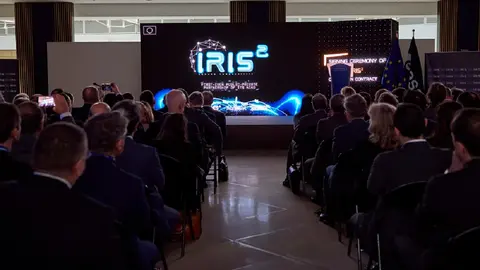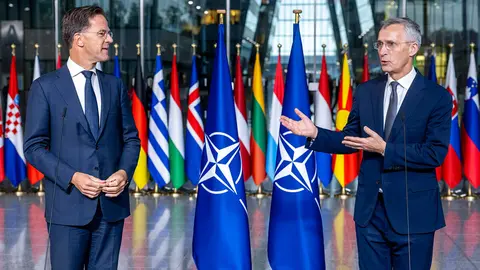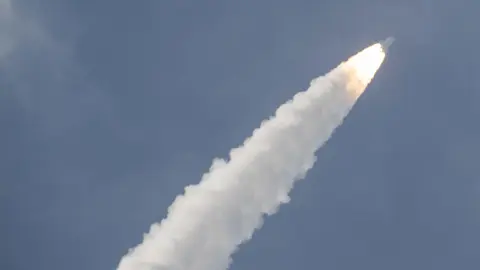European Commissioner for Defence and Space: ‘The gaps in our military capabilities are very serious’
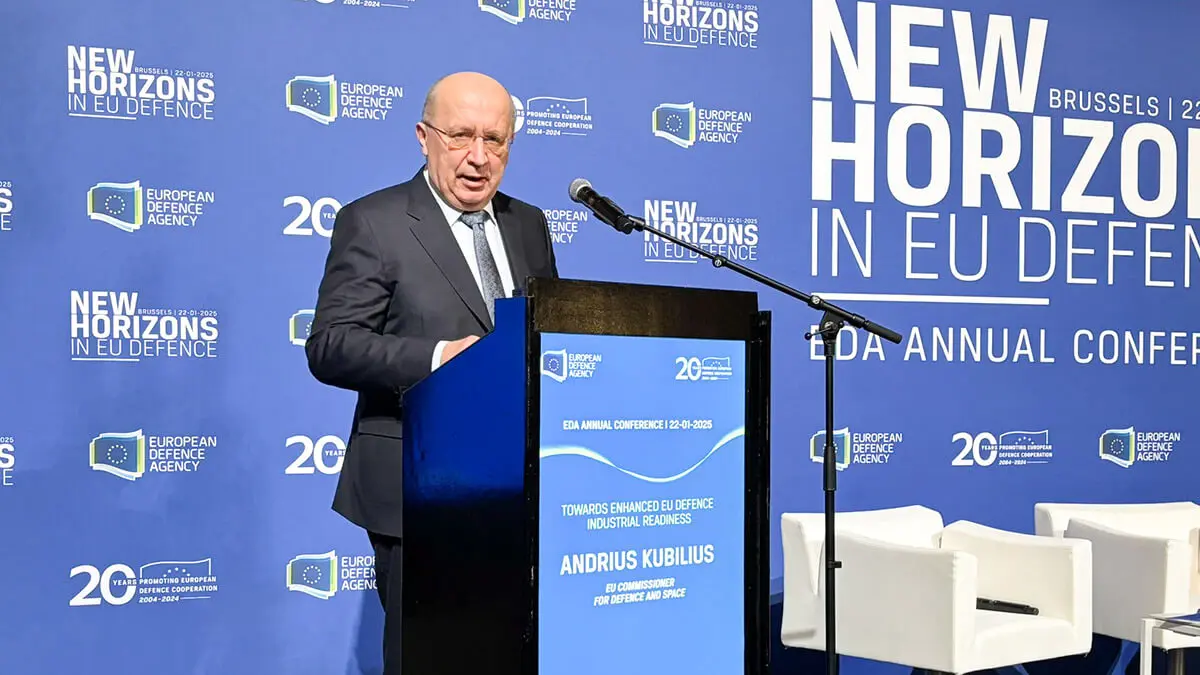
The first and recently appointed European Union Commissioner for Defence and Space, Andrius Kubilius, 68, has taken his oath twice in a row in the square in Brussels. And he has not done so in front of amateurs, but in front of true professionals from politics and industry in both sectors.
In one case he gave the opening speech at the 17th European Space Conference, which at the end of January was attended in person or online by more than a thousand executives and senior officials from the business and government sectors of the Old Continent and ambassadors from third countries.
A few days earlier, also in the Belgian capital, Kubilius had addressed the annual meeting of the European Defence Agency (EDA), which has just celebrated its first 20 years of existence and which, for the time being, remains under the control of the new Vice-President and High Representative of the Union for Foreign Affairs and Security Policy, the former Prime Minister of Estonia, Kaja Kallas.
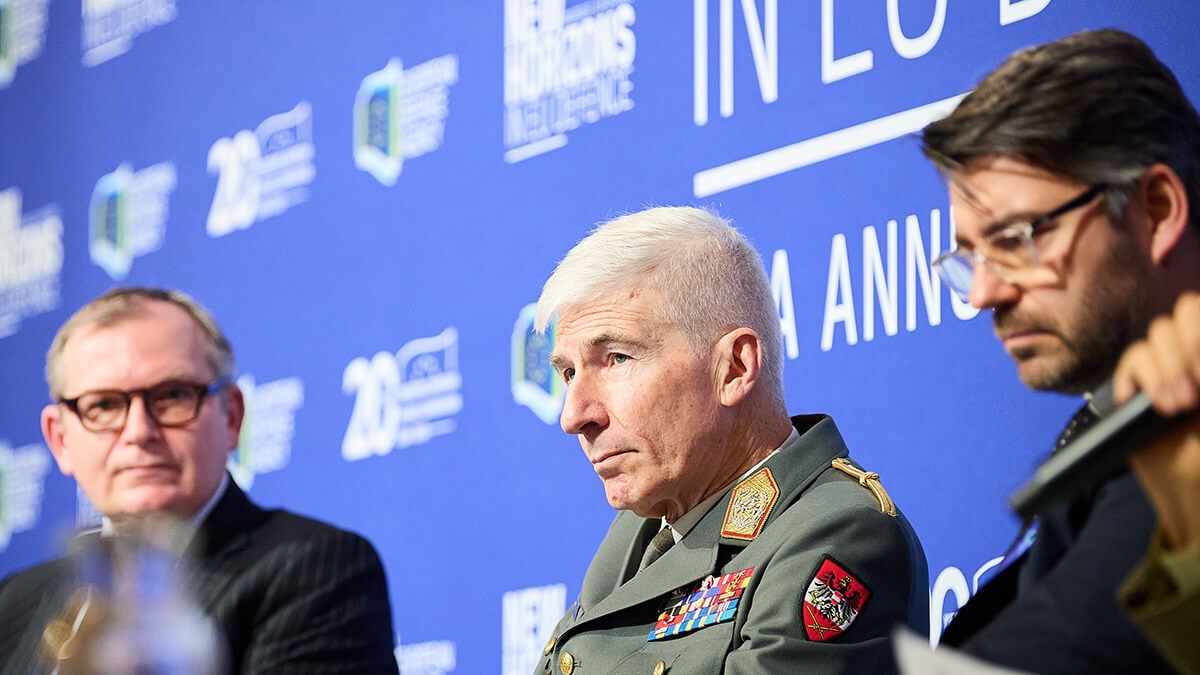
Before an expectant audience, Commissioner Andrius Kubilius's first speech to the senior representatives of the European Defence Community was to tell them that ‘at the moment, the gaps in our defence capabilities are very, very serious’ and that the deficiencies in military equipment, when compared to the Russian war economy, are ‘colossal’. He was categorical in stating to the chairman of the EU Military Committee since May 2022, General Robert Brieger - former Chief of Staff of the Austrian Armed Forces - that ‘if the costs of deterrence are high... the costs of fighting a war in Europe are much higher’.
Europe needs what he has dubbed a ‘big bang European approach’ to increase the production and acquisition of defence systems because, in his view, ‘we are being attacked by land, sea, air and in cyberspace’. Russia is waging a ‘new generation war against us through propaganda, sabotage and actual military aggression, which are different forms of total war’. And he warns: ‘If we do nothing, these hybrid attacks could be followed by military attacks, as there should be no doubt about Putin's intentions’.
The new commissioner denounces that the Russian president wants to turn the clock back ‘forty years or more’ which, in his opinion, ‘could mean the annexation, the occupation of parts of Europe and the domination of the rest’. And he warns that Putin's first step would be to ‘seize the hearts and minds of our peoples’. He also warns that ‘Russia is not alone. North Korea and Iran are part of the same axis of aggressive authoritarians’. Of China, he prudently says only that it ‘is not far behind’.
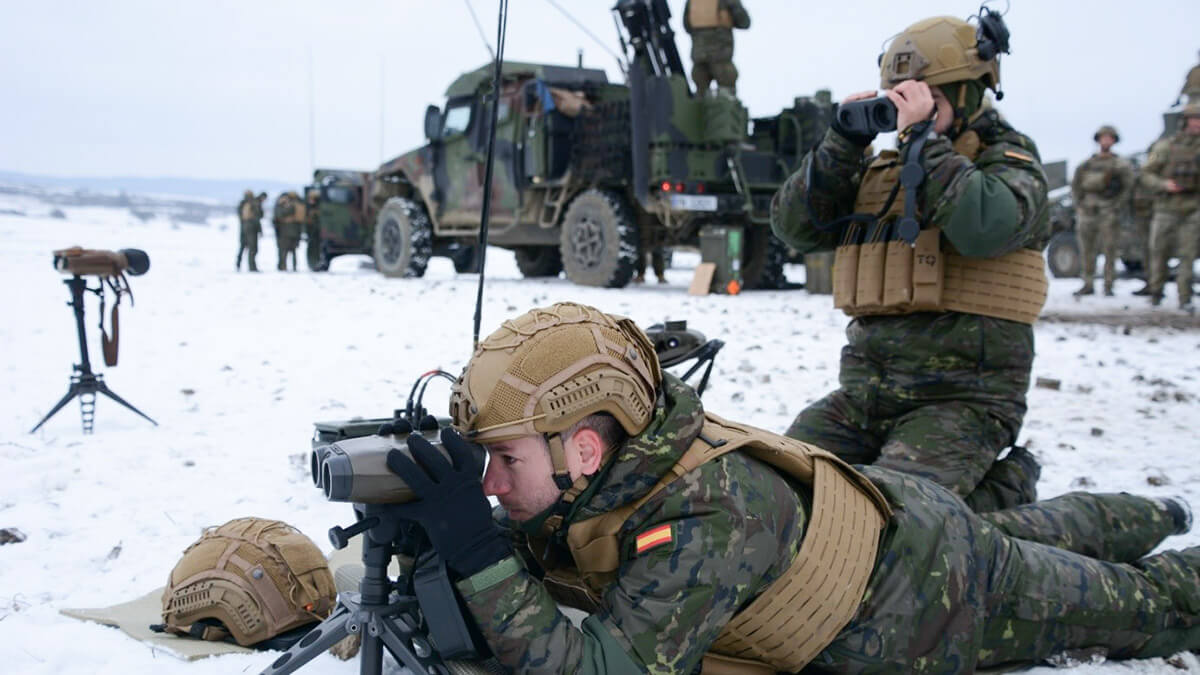
Not a word about the South or the Sahel
In his dissertation, the veteran politician brought up Jean Monnet, one of the founding fathers of the European Economic Community, recalling his phrase that ‘when a nation faces an existential threat, money cannot become an obstacle to defence’. He asserts that ‘in our preparation we face major gaps in deterring the enemy... and we are struggling to find funds for our defence’.
Despite everything, Kubilius affirms that ‘we can still deter Russian aggression in Europe’. Firstly, with military support for Kiev, because ‘defending Ukraine means defending Europe and every day that Ukraine fights is a day that the European Union and NATO can become stronger’. Secondly, ‘by making sure that the military forces of our EU Member States have the weapons they need’.
He was adamant in stating that ‘Member States will remain responsible for deciding what capabilities they develop and acquire, NATO will assess military needs and objectives, and the EU will help to develop and acquire these capabilities faster, cheaper, more jointly and with timely delivery’. ‘We need to spend more and better, to spend together and in a European way.’ And he emphasised that in these times of existential danger, we should not limit our defences to match our finances, but rather the other way around: ’we need to mobilise our finances to match our defence needs’.
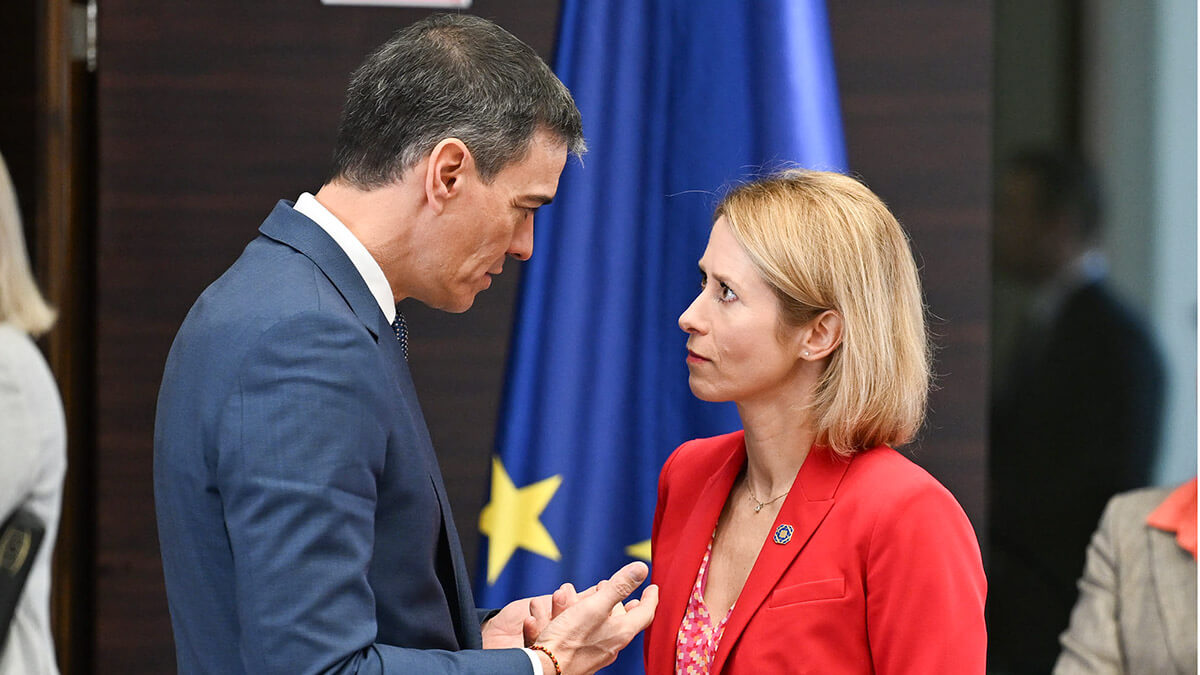
He pointed out that the European Defence Fund (EDF) is the third largest investor in defence research and innovation in Europe, and that with 1 billion euros per year it now supports a total of ‘162 joint projects in the military land, naval, air, cyber and even space domains’. As projects of common interest, he has said that work must begin on what he has dubbed ‘shields’, those of air defence, cyber defence, defence of the north-eastern border, military mobility and also the space shield.
Kubilius has insisted that the EU must help its member countries to improve their defence preparedness. However, he has not said a word about stability on the southern flank, including the Middle East and the Sahel. A communiqué from Moncloa claims that President Sánchez brought it up again at the informal meeting of EU heads of state and government last weekend and on Monday in Brussels at the behest of Antonio Costa, the new President of the European Council and former Prime Minister of Portugal.
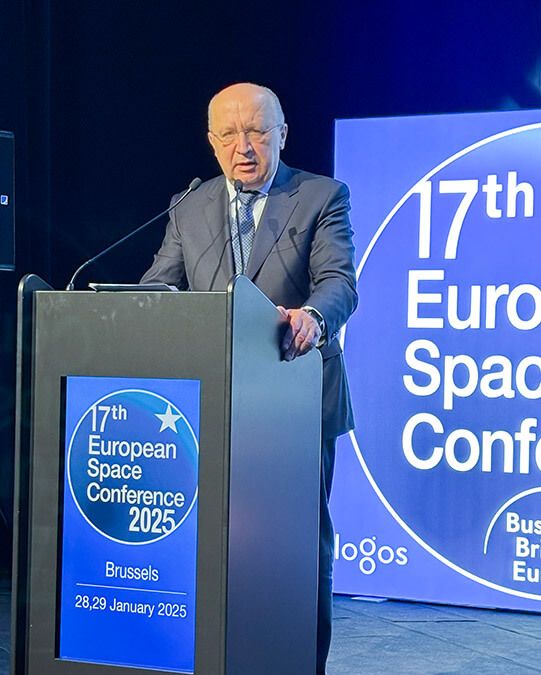
Space, strategic autonomy and defence
In his second major speech on 28 January to the group of senior national and EU officials, executives from the European space industry and from around the world, the commissioner turned the audience's ears to mush by telling them that ‘you have turned Europe into a global space power and we are among the leaders in terms of satellites launched and in terms of industry revenue’. ‘We have Galileo, the best satellite navigation system in the world, Copernicus, the best Earth observation system in the world, and we will have IRIS2, the best space connectivity system in the world’.
But, immediately afterwards, he warned them that ‘we are at a critical crossroads and, if we want to maintain our leadership in space, we have to take bold and decisive steps’. He warned his large and select audience that ‘if we do nothing, we run the risk of stagnating and declining compared to others... and that is unacceptable’. He claimed that ‘the future belongs to space and whoever controls space, controls the future’.
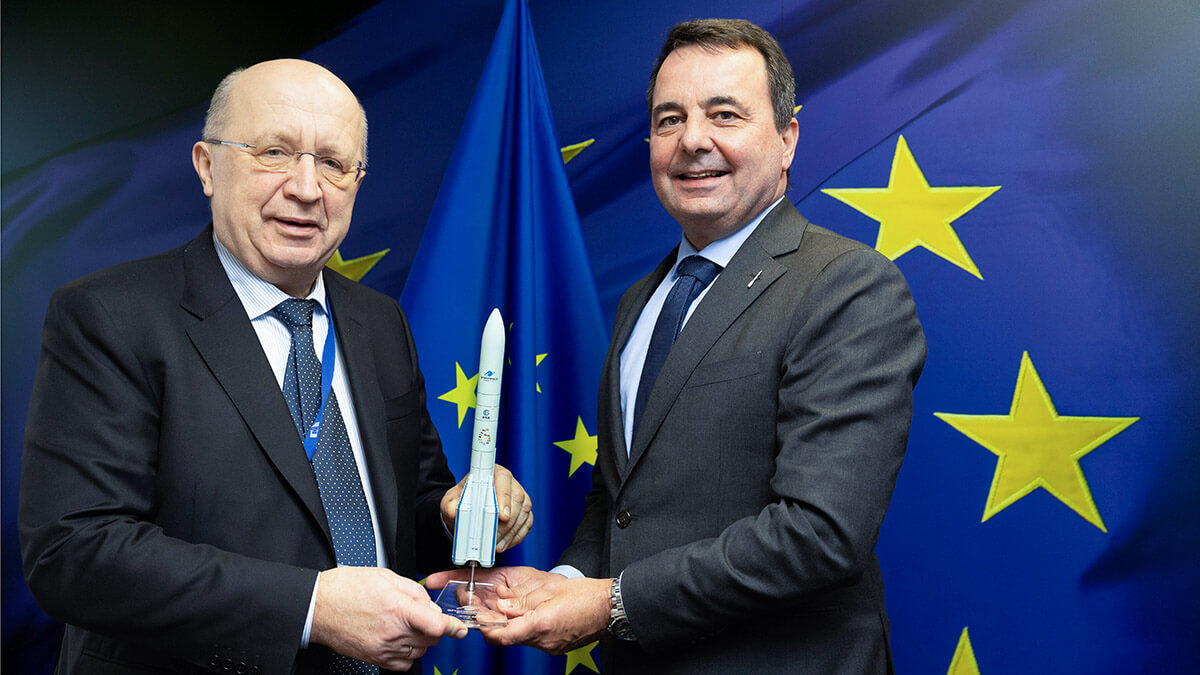
Kubilius has indicated that ‘we are at the dawn of a space revolution’ and has ventured to say that the global space economy ‘could triple in size in ten years’ thanks to the rise of tourism, artificial intelligence, energy, mining, manufacturing and ‘even colonies in low Earth orbit’. The space market is ‘big, but our public spending is too low and fragmented, which makes ambitious long-term projects very difficult’.
‘We are now at the top when it comes to navigation, observation and exploration,’ he said, ‘but we must change our trajectory because in other areas we are losing ground. And change is not easy’. He did not hesitate to state that ‘commercial sales, exports and profits in the sector have fallen and we run the risk of falling behind’. However, to be a true space power, ‘a strong, innovative and competitive industry is required’, so ‘we will propose an EU space law that will create a single market for space, facilitate the activities of our start-ups and attract more private investment’.
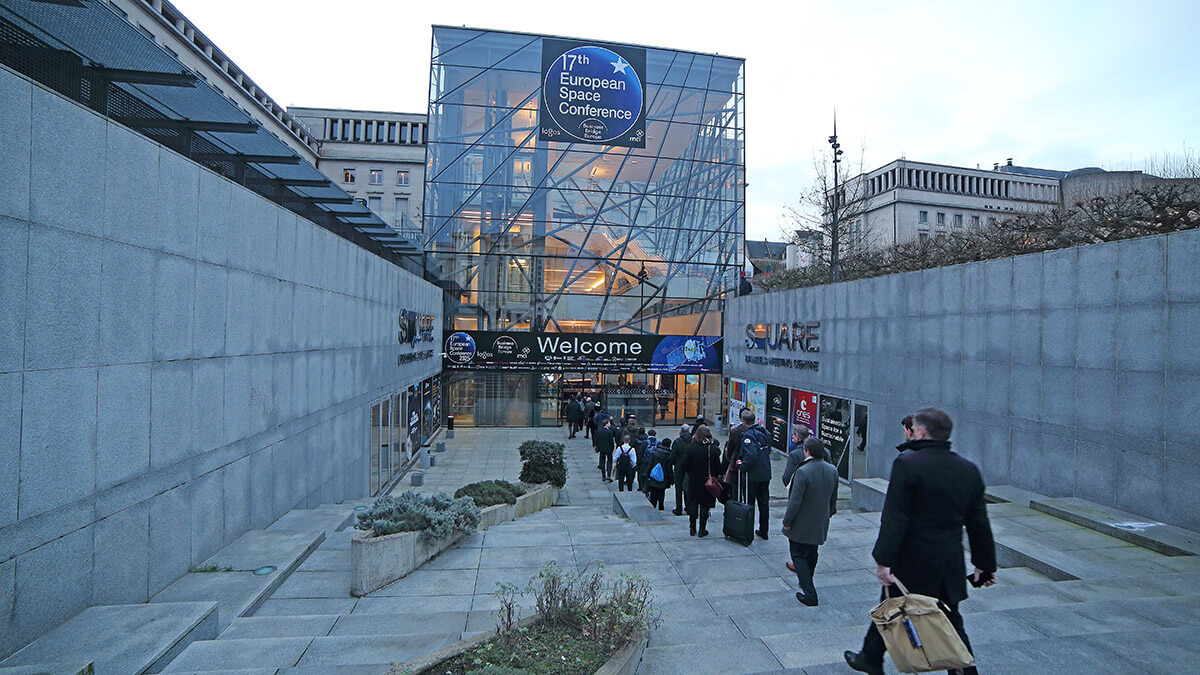
As Commissioner for Space but also for Defence, he emphasised that Europe has built a unique presence in the cosmos that serves all of humanity ‘and we must defend it from any aggressor’. He was adamant in stating that ‘there can be no defence without space and there is no space without industry, so a strong presence in space is necessary to defend Europe’.
He did not forget to share that it is essential to guarantee autonomous access to space, which ‘is vital for our strategic autonomy’. ‘We need our own launchers, more models, better and cheaper ones, so as not to depend on rockets from third countries’. He has also repeatedly referred to investments, which he aspires to ‘be in line with our space ambitions, for both civil and defence purposes’, with which the funds from Brussels, national, private and from the European Space Agency should be aligned. Newly arrived at the Brussels bridge, Andrius Kubilius and his team have enough years ahead of them to realise at least some of these exciting aspirations.


